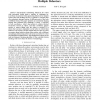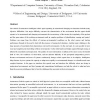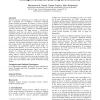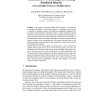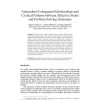65 search results - page 4 / 13 » Closing the Affective Loop in Intelligent Learning Environme... |
126
click to vote
CEC
2009
IEEE
15 years 8 months ago
2009
IEEE
— Automatically synthesizing behaviors for robots with articulated bodies poses a number of challenges beyond those encountered when generating behaviors for simpler agents. One ...
103
click to vote
ISCI
2002
2002
Intelligent learning and control of autonomous robotic agents operating in unstructured environments
15 years 25 days ago
The control of autonomous intelligent robotic agent operating in unstructured changing environments includes many objective difficulties. One major difficulty concerns the charact...
137
click to vote
WWW
2003
ACM
16 years 1 months ago
2003
ACM
The large amount of information now available on the Web can play a prominent role in building a cooperative intelligent distance learning environment. We propose a system to prov...
ATAL
2006
Springer
15 years 4 months ago
2006
Springer
In this paper we present the Behaviosite paradigm, a new approach to affecting the behavior of distributed agents in a multiagent system, which is inspired by biological parasites ...
104
click to vote
AIED
2009
Springer
15 years 5 months ago
2009
Springer
We explored the complex interplay between students' affective states and problem solving outcomes. We conducted a study where 41 students solved 28 analytical reasoning proble...
